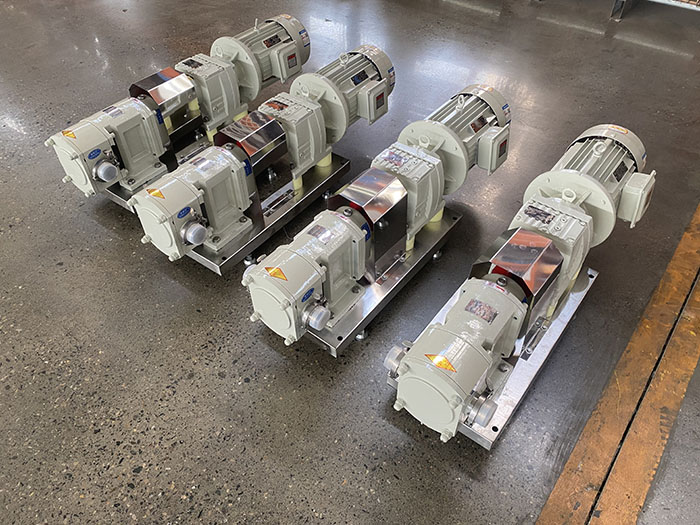When it comes to food processing plants, selecting the right pump types is crucial for maintaining efficient and hygienic operations. Food processing involves handling various ingredients, liquids, and viscous materials, making it essential to choose pumps that can handle these substances reliably. In this article, we will discuss the key factors and considerations that food processing plant operators should keep in mind when selecting pump types.
Material Compatibility: The first factor to consider is the compatibility of the pump materials with the substances being processed. Food processing plants handle a wide range of ingredients, including liquids, solids, and abrasive or corrosive materials. Ensure that the pump materials are suitable for contact with food products and can withstand the corrosive nature of certain ingredients. Stainless steel pumps are often preferred for their resistance to corrosion and ease of cleaning.
Hygiene and Cleanability: Maintaining hygiene in food processing plants is of utmost importance. Choose pumps that are designed with cleanability in mind, with smooth surfaces and minimal crevices where bacteria can accumulate. Look for pumps that comply with food safety standards, such as those meeting FDA or EHEDG guidelines. Additionally, consider pumps with features like quick disassembly and easy access to facilitate thorough cleaning and sanitization.
Flow Requirements: Consider the flow requirements of the food processing operation. Different processes may require pumps with varying flow rates and pressures. Calculate the required flow rate based on the production capacity and the viscosity of the materials being handled. Ensure that the selected pump type can deliver the necessary flow rate to meet production demands efficiently.
Viscosity and Handling Capability: Food processing often involves handling viscous materials such as sauces, creams, or pastes. Select pumps that can handle these substances effectively without clogging or losing efficiency. Positive displacement pumps, such as rotary lobe or peristaltic pumps, are often suitable for handling high viscosity fluids.
Temperature Sensitivity: Some food processing operations require pumps that can handle high temperatures. Consider the temperature requirements of the process and choose pumps that can withstand the desired temperature range without compromising performance or safety.
Energy Efficiency: Energy consumption is a significant consideration in any industrial operation, including food processing plants. Select pumps that are energy-efficient and have high motor efficiencies. Look for pumps with variable speed drives or frequency converters, as they can help optimize energy usage by adjusting pump speed based on demand.
Noise and Vibration: Noise and vibration can be disruptive to the working environment and potentially affect product quality. Choose pumps that operate quietly and have low vibration levels. This is especially important in food processing plants where noise reduction and worker comfort are crucial.
Selecting the right pump types for food processing plants requires careful consideration of material compatibility, hygiene, flow requirements, viscosity handling capability, temperature sensitivity, energy efficiency, and noise/vibration levels. By taking these factors into account, plant operators can ensure efficient and hygienic operations, maintain product quality, and adhere to food safety standards.
